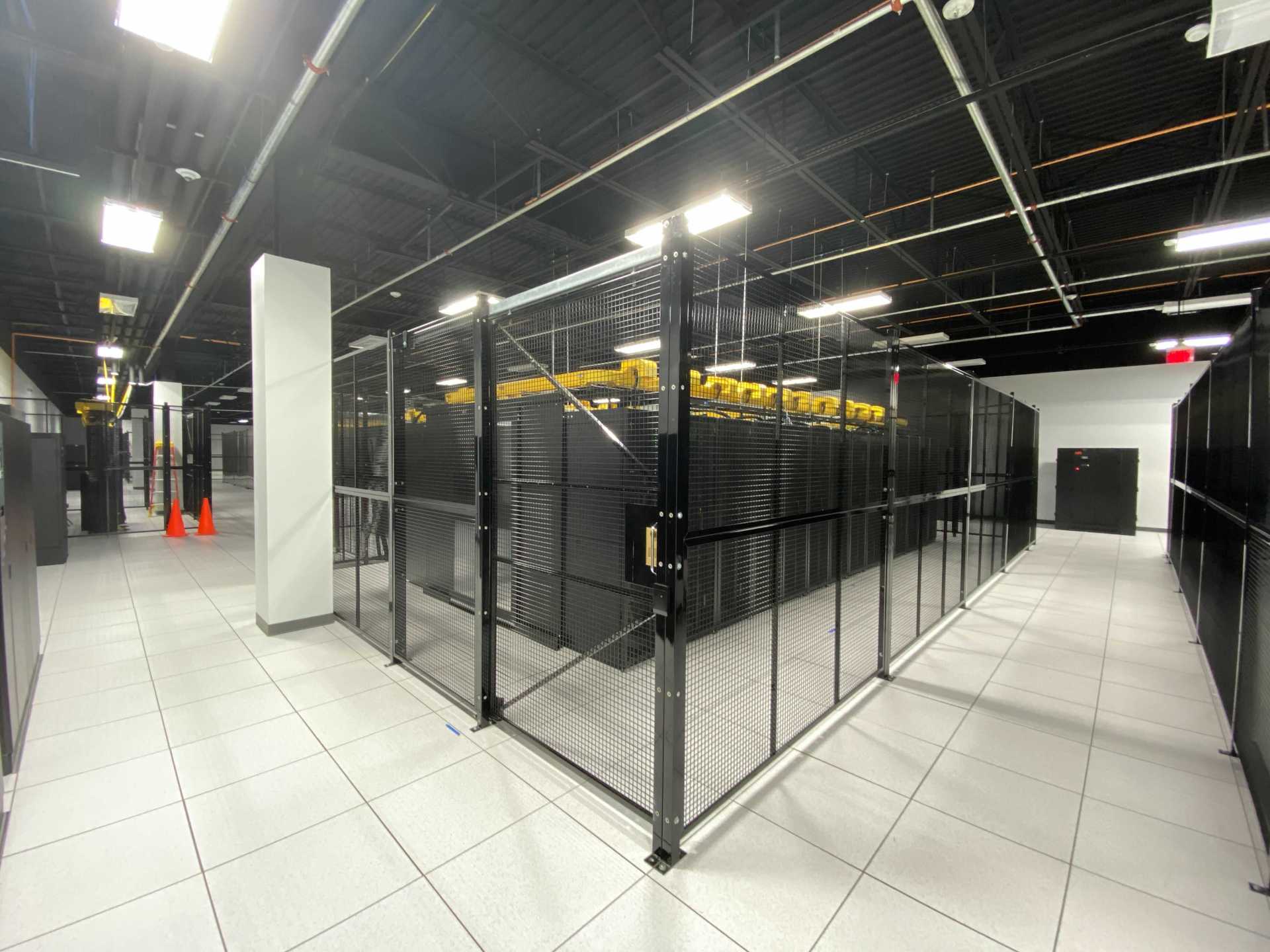
A data center pod is a modular and scalable unit that provides the infrastructure necessary to house and manage data center operations. Data center pods were developed in the 1990s as a way to make data centers more flexible. They are still very popular today. Here is a quick guide to what you need to know about data center pods.
A data center pod is a pre-fabricated and pre-configured unit. Data center pods can serve as small-scale data center solutions (e.g. edge cloud). They can also be used as part of a larger data center (e.g. a regular centralized cloud). Their ability to be quickly deployed and decommissioned makes them well-suited for dynamic environments.
The design of a data center pod typically includes standard components such as power, cooling, network connectivity, and physical security. These components are engineered and integrated to work together seamlessly. This provides a high level of reliability and performance.
The result is a highly efficient and scalable data center that can be deployed in a matter of weeks. By contrast, a traditional data center would usually take several months if not years to build from scratch.
Data center pods can be categorized into seven main types:
Independent data center units designed for specific capacity requirements.
Prefabricated data center units that can be easily added to an existing facility to expand its capacity.
Small, self-contained data center units designed for edge computing and remote locations.
Data center units are housed in shipping containers for easy transportation and deployment.
A combination of standalone and modular pods.
Dedicated data center units providing isolated, secure cloud computing resources for a single organization.
Shared data center resources providing cloud computing services to multiple organizations.
Data center pods have several advantages over traditional data centers. Here are the key ones.
Data center pods are simple to add and remove. This means that organizations can scale their operations quickly and easily.
For example, using data center pods makes it easy for growing organizations to expand their IT infrastructure in line with their needs. On the flip side, data center pods can be easily decommissioned and./or moved if businesses take their infrastructure in a new direction.
The modular design of data center pods allows organizations to configure the unit to meet their specific needs. In particular, the network connectivity can be configured to support different kinds of applications.
Data center pods will typically have robust access controls plus a range of logical and physical security measures.
Modern data center pods are very likely to support biometric authentication. This is very effective at preventing unauthorized access to sensitive data and equipment.
They will also have network security appliances and physical defenses such as fire monitoring and suppression systems.
A data center pod is created out of pre-engineered components and systems. These are designed to work together seamlessly. This reduces the risk of downtime and improves the overall performance of the data center.
Using a data center pod can also enable businesses to optimize their energy usage. This can help to reduce their operating costs (and carbon footprints).
The pre-fabricated and pre-configured nature of the data center pods reduces the cost of construction and deployment. This makes it easier for organizations to expand their operations as needed.
If you are considering implementing a data center pod, here are the key points you should consider.
Your starting point should almost always be to find a safe location with reliable power and network connections.
All digital security rests on a foundation of physical security. You need to ensure that your equipment is protected from extreme weather conditions and fires. You also need robust access controls and monitoring systems to back them up.
How will the facility minimize downtime in case of unexpected events?
What is your plan for performance tracking, issue detection, and incident resolution?
How will you ensure that you have access to superfast, ultra-reliable broadband at all times?
How will you ensure operational continuity in case of power outages?
What infrastructure do you need to ensure that your equipment always operates at the optimal temperature?
How will you accommodate future growth and technology changes?
You might also want to consider what steps you can take to make your data center pod as sustainable as possible. This can actually help to reduce your operating costs. For example, if you can generate renewable energy on-site then your power costs will be lower.


Discover the DataBank Difference today:
Hybrid infrastructure solutions with boundless edge reach and a human touch.